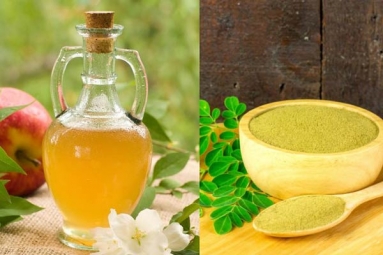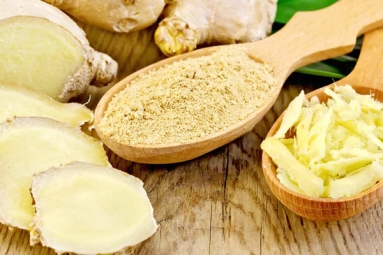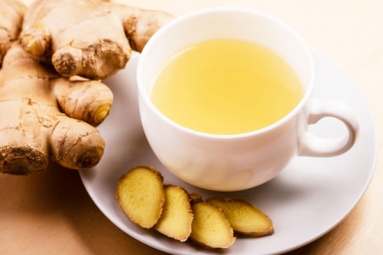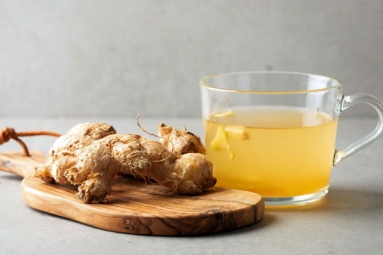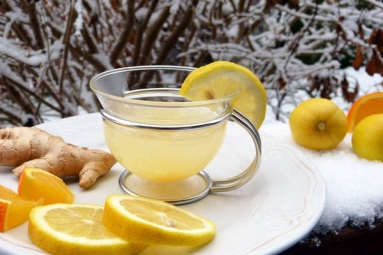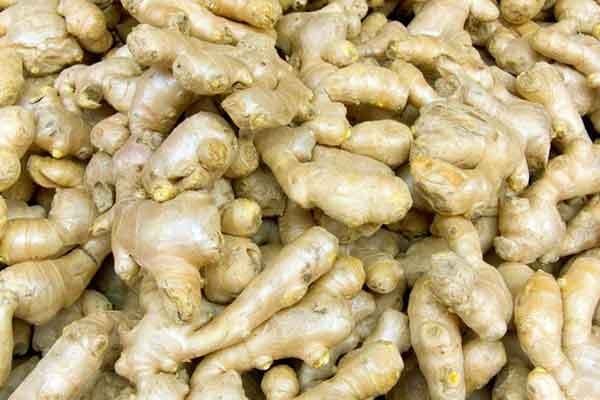
(Image source from: Canva.com)
In a place where the traditional Indian kitchen is well-known for its health benefits, the scent of ginger tea is a part of many people's morning routine; it’s not surprising that Indians turn to this simple root for its natural ability to boost health. For ages in India, ginger has been regarded as a valuable ingredient to help with common health problems that come with the seasons. Its strong taste is due to active substances like gingerols and shogaols, which are the real champions behind its healing powers that calm the lungs. When you eat ginger first thing in the morning on an empty stomach, it is believed that these strong compounds get used better by the body, making way for a day with less swelling and better lung performance. Having just a small bit of freshly grated ginger in the morning can help with lung wellness. Whether it's the anti-inflammatory effects of ginger or its ability to ease the airways, the awful cough caused by air pollution needs a mix that can lessen the discomfort. This is valid since the rise in air pollution and seasonal colds can be unpleasant, and your lung health requires all the assistance it can receive.
So, what does ginger really do for your lungs? Think of it as a natural cleaner of toxins and a soothing agent for your bothered airways. Here are some ways eating ginger can assist your lung health. Ongoing inflammation of the airways is the main reason for many long-term lung issues, such as asthma and COPD, or Chronic Obstructive Pulmonary Disease, which is a worsening lung condition where airflow is blocked, making it hard to breathe, and gets worse due to air pollution. Ginger's top quality is its strong anti-inflammatory ability from its active components that can slow down how your body reacts with inflammation. A study shared in the Turkish Journal of Medical Sciences in 2018 showed that ginger effectively lowered lung harm caused by hyperoxia (which means being around high amounts of oxygen that can lead to oxygen toxicity, seizures, lung damage, and other problems) and inflammation. Since India often deals with high levels of environmental stressors, anti-inflammatory help is essential for keeping lung function and fighting chronic health problems.
Therefore, to gain the full health advantages of ginger, begin your day with a small amount of ginger powder, and if you prefer fresh ginger, it can be grated into warm water or a light tea; it is like providing an anti-inflammatory support directly to your respiratory system for healing.
If you have issues like asthma, where your airways become narrow, eating ginger can assist in relaxing the muscles in the airways, making it easier to breathe. This benefit is due to a key substance in ginger called shogaols, which works together with common asthma medications to aid those with asthma in breathing more comfortably. Since there are 13 million people with asthma in India, this herbal remedy could be a useful natural option for improving airway relaxation. This is a primary reason why ginger has been a traditional remedy for coughs and stuffy noses, as it physically helps clear your air passages.
Note: Asthma is a serious condition. Do not assume that taking ginger every day will cure asthma; it will only help lessen the symptoms. Be sure to talk to a healthcare professional before you start using ginger, as other health issues and medications may interact with it. Taking care of your health is very important.
Ginger also acts as a natural expectorant, which means it helps the body remove and clear mucus from the lungs. When you wake up, your body is working to eliminate toxins and waste that have built up during the night. Drinking warm ginger tea can help speed up this process, supporting the clearance of mucus and making your airways clearer for the day.
Here are some safe ways to use ginger:
Ginger Tea (Adrak Wali Chai, Without Milk):
Boil a small piece of fresh ginger (around 1 inch, crushed) in half a cup of water for 5 to 10 minutes.
Strain the tea and drink it warm.
After it cools a bit, add half a teaspoon of lemon and a teaspoon of honey for an extra immune boost.
Tip: Add the honey once the tea is ready, because heating can reduce the benefits of honey.
Ginger-Turmeric Shot:
Take a small piece of fresh ginger and grate it into a pot of water.
Mix in a pinch of raw turmeric, blend it into the water, and then strain into shot glasses.
This powerful anti-inflammatory drink will enhance your lung health, especially with the increasing air pollution in cities.
Always remember that while ginger is a strong supplement, it shouldn't replace prescribed medicine, particularly for ongoing conditions such as asthma or COPD. Always check with your doctor for health advice before proceeding.





